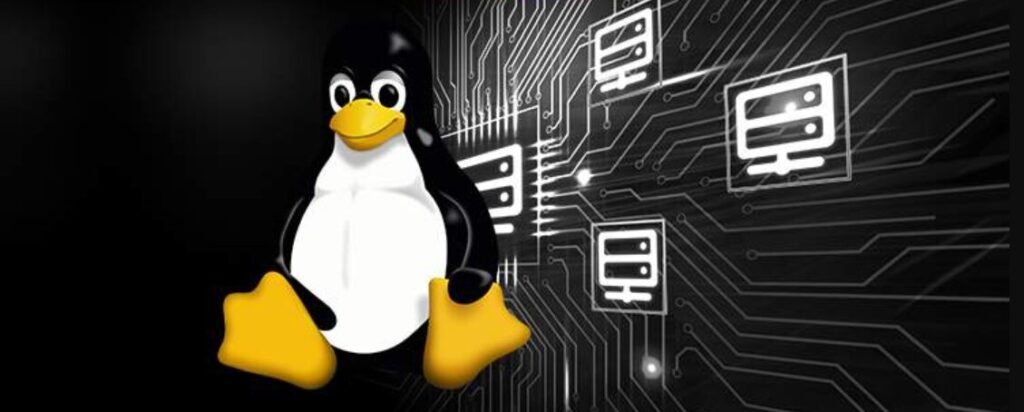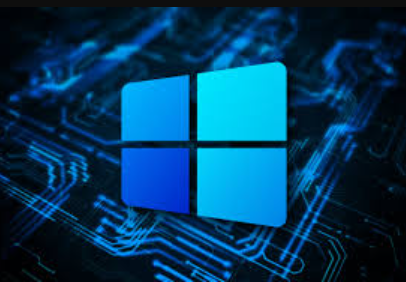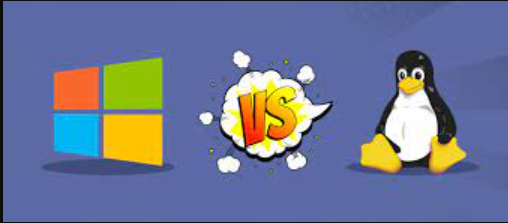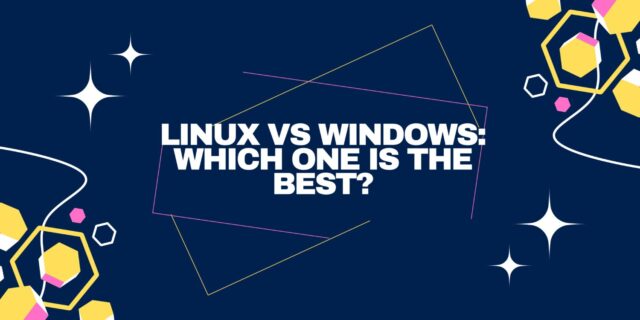Windows and Linux are the two predominant operating systems. Each has special qualities and talents, so the ideal option for you will depend on your individual requirements and tastes. Here, we shall examine Linux vs Windows: Which Operating System is Best?
What is an Operating System?
A computer’s memory and storage are two examples of the resources managed and controlled by an operating system or OS. It serves as a mediator between the operating system and the machine’s actual hardware. The operating system (OS) controls memory allocation, input and output processes, and user interface creation. Well-known operating systems include Windows, Linux, and macOS.
What is Linux?
Linux is a widely used free, open-source operating system due to its community support, security features, and customizability. It is one of the most popular operating systems since it is compatible with nearly all desktop computers. It has easy hardware resource management, application handling, and hardware resource launch capabilities. Since Linux may be used for any purpose, developers utilize it extensively, and it has permeated many areas of computing.

What is Windows?
Microsoft was the company behind Windows development. Windows offers a Graphical User Interface (GUI), virtual memory management, and an intuitive environment for managing software, applications, and systems. Microsoft created Windows to make it worthwhile for both personal and business tasks. Hardware from HP, Dell, Sony, and other home-built PCs can run Windows.


Linux vs Windows: Customisation
Linux users have several customization and flexibility options. Linux users have an abundance of desktop environments to select from, including GNOME, KDE, Xfce, and others. These environments allow users to customize their system’s appearance and feel, alter themes, and personalize their interface. Linux users may modify workflows, adjust system settings, and customize the operating system to meet their unique needs.
In contrast, Windows provides a uniform experience for customers across all of its versions, guaranteeing familiarity and consistency. Although it offers customization possibilities, such as altering backgrounds, themes, and icon arrangements, its versatility is less than that of Linux. It emphasizes providing a unified and intuitive user interface consistent across all devices and editions, facilitating users’ navigation and system operation.


Linux vs Windows: Server performance
Linux users have several customization and flexibility options. Linux users have an abundance of desktop environments to select from, including GNOME, KDE, Xfce, and others. These environments allow users to customize their system’s appearance and feel, alter themes, and personalize their interface. Linux users may modify workflows, adjust system settings, and customize the operating system to meet their unique needs.
In contrast, Windows provides a uniform experience for customers across all of its versions, guaranteeing familiarity and consistency. Although it offers customization possibilities, such as altering backgrounds, themes, and icon arrangements, its versatility is less than that of Linux. It emphasizes providing a unified and intuitive user interface consistent across all devices and editions, facilitating users’ navigation and system operation.
Linux vs Windows: Software availability
Linux is well known for its strong stability and security characteristics. It offers security against viruses and unauthorized access with frequent updates and a robust user permissions system. Furthermore, Linux’s open-source design makes detecting and fixing security flaws possible quickly. Because of this feature, individuals worried about their privacy and data may choose it confidently and securely.
Though Windows’ security has improved over time relative to Linux, because of its greater user base, malware still frequently targets it. It includes frequent updates and security features like Windows Defender to reduce threats and guarantee system stability. To protect your computers adequately, you are urged to use extra security measures and be cautious when accessing the internet.
Linux vs Windows: User Interface
Users of Linux operating systems may customize desktop environments like KDE and GNOME. Users may customize their interface, change the themes, and fine-tune settings in these environments to suit their tastes. Its users may customize their desktop experiences to their liking.
On the other hand, Windows provides a unified and intuitive user experience across all its versions. Users switching from earlier versions can efficiently utilize it because of its recognizable structure and process. It puts the user’s experience first and strives for a simplified appearance and feel across all platforms.
Windows prioritizes familiarity and simplicity of navigation, but Linux places more emphasis on customization and individual preferences. Ultimately, the user’s taste for a highly customizable, standardized, and user-friendly experience will determine their chosen option.
Linux vs Windows: Cost and licensing
Open-source software, such as Linux, is widely recognized for being free. Linux distributions are free to download, use, alter, and share, and there are no fees associated with this. Furthermore, a large percentage of Linux software is open source and free, giving you access to a wide range of applications without incurring additional costs.
The Windows operating system needs a license for the majority of versions. Different versions meet different user demands, and the cost of licensing varies based on the version and use permissions. Although there are free versions of Windows available, such as Windows 10 Home, some features and functions could be limited or require extra costs. Moreover, consumers must account for additional expenditures when estimating the total cost of utilizing commercial software on Windows, as they are frequently distinct expenses.
Linux vs Windows: Security
Linux offers the greatest security features. One reason It is so well-liked by developers is that it is exceedingly hard to break through. It also has a robust user base that assists in locating and resolving problems. The source code is available to the Linux community. Due to this, it is simpler to keep an eye out for problems that could affect the program and become less susceptible to hacking. Furthermore, Linux users are less susceptible to system viruses since they have restricted access.
Conversely, since Windows users need access to the source code, they cannot resolve the problem independently. The system is more vulnerable to hackers as they cannot verify its weakness. The system is rapidly ruined when a virus infects a Windows computer since users have complete admin access to all accounts. Additionally, Windows OS is not segmented, which increases its susceptibility to attacks.
Conclusion
Both computer systems are significant in terms of their uses, functions, and roles in their respective fields. Thus, consider your needs again and select the system appropriately. Consider aspects like community support, software, security, and customization to choose the best for your needs.
Is it possible to operate Windows and Linux on the same machine?
Indeed, you may utilize virtualization software to run Linux on Windows or dual-boot your computer to run both operating systems.
How can I expand my knowledge of Linux?
Linux has a plethora of online forums, lessons, and tools. Moreover, the official websites of well-known Linux distributions are excellent places to start.
What about Windows and Linux in the future?
Windows’ extensive software ecosystem and ease of use will probably keep it at the top for daily use. Thanks to its open-source, flexible, and secure design, Linux is predicted to become increasingly popular for servers, cloud computing, and power users.












